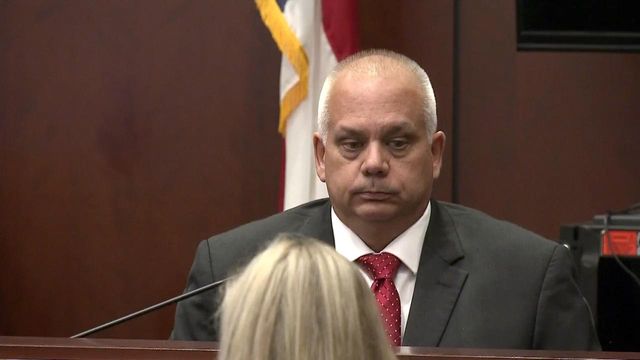Defense paints Wake Forest man who killed neighbors as paranoid, unable to handle feud
A Wake Forest man who killed three of his neighbors three years ago was under tremendous stress at the time, and his mental troubles limited his ability to control his actions, a psychologist said Tuesday.
Posted — UpdatedThe jury now must consider whether Sander should be sentenced to death or life in prison without parole.
Prosecutors offered little additional evidence to what they presented during the trial, but they did play for jurors a 911 call from the Mazzellas' 14-year-old daughter in which she was so hysterical and terrified she could barely report the shootings.
Most of Tuesday was spent on the defense's effort to present Sander as a sympathetic character who doesn't deserve to be put to death.
"Jon is not the man you guys all seem to think he is," Sander's ex-wife, Tracy Caggiano, testified. "For Jon to have done anything like this, to me, he had to be pushed to some limit. ... This just is not Jon."
Sander told investigators after the shooting that he "snapped" because of an escalating feud between him and Sandy Mazzella. The two men lived next door to each other and shared a landscaping business, but their relationship unraveled as they tried to dissolve the struggling business in ealry 2016.
Sandy Mazzella and his father took out restraining orders against Sander in February 2016, and Sander was charged with threatening the Mazzellas. A few days before the shootings, Sander was accused of inappropriately touching a member of the Mazzella family.
"[There were] at least a couple of months of stress that was escalating over time and becoming rather intense," said Cindy Cottle, a forensic psychologist in Raleigh who examined Sander for the defense.
Cottle noted that Sander had previously been diagnosed as bipolar, and she also said he has a borderline personality disorder that affected his ability to control his behavior. His heavy drinking only aggravated those problems, she acknowledged under cross-examination.
"He had a very well documented history of, at a minimum, perceiving events inaccurately," she said.
Joe Sander testified that his older brother has always been a bit paranoid, going so far as to construct safe rooms in almost every place he's lived and would sometimes hide out in them for days.
"Everything's always been about image for Jon. Jon always had to be perfect," he said. "Some people pretend to be crazy for certain reasons. I always believed that Jon pretended to be normal because, if he had a defect, he wouldn't be perfect, and he always wanted everyone to view him as perfect."
Joe Sander recounted how his brother called him after shooting the Mazzellas and that he initially hung up on him because he thought it was a bad joke. But he called Jon Sander back and eventually persuaded him to surrender to police, noting that Jon Sander had planned to kill himself or engage law enforcement enough so that someone would shoot him.
"It was probably the hardest conversation I've ever had in my life," Joe Sander said.
Related Topics
• Credits
Copyright 2024 by Capitol Broadcasting Company. All rights reserved. This material may not be published, broadcast, rewritten or redistributed.






